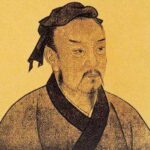 Sun Tzu wrote The Art of War nearly 2500 years ago; his ideas have been widely translated and are regularly used as a guide for management thinking. This post will take a different perspective, ‘Sun Tzu and the art of stakeholder engagement’! After all “The greatest victory is that which requires no battle”, which is the ultimate aim of every stakeholder engagement process.
Sun Tzu wrote The Art of War nearly 2500 years ago; his ideas have been widely translated and are regularly used as a guide for management thinking. This post will take a different perspective, ‘Sun Tzu and the art of stakeholder engagement’! After all “The greatest victory is that which requires no battle”, which is the ultimate aim of every stakeholder engagement process.
One of the clearest messages from any reading of The Art of War is the supremacy of strategy over tactics and tactics over reaction. Yet project teams spend most of their time reacting to stakeholders with a few tactical activities, such as report distribution and progress meetings. This approach gives the initiative to the stakeholders and, as we all know, not every stakeholder has the projects best interests at heart and those that are supportive rarely have a deep understanding of your project’s real needs.
Sun Tzu states that success is driven by strategy: “All men can see these tactics whereby I conquer, but what none can see is the strategy out of which victory is evolved”. Planning your stakeholder engagement should involve far more than simply deciding who needs what information.
The starting point for a good strategy is good intelligence “If you know the enemy and know yourself you need not fear the results of a hundred battles”.Project managers and their teams need to understand who is important and why, what their attitude to the work is (and why), what do we need from them (if anything), what they want from us (if anything), and anything else that may be useful… (the Stakeholder Circle® methodology is designed to help draw out this level of information).
After this analysis, key questions for the team include:
- How reliable is our information?
- What changes do we need to create in the stakeholder community?
- Where are the risks and threats within the community?
- Operating ethically, how can we make the changes we need?
- How can we minimize any opposition and damage?
Now you are in a position to develop a pragmatic strategy to proactively engage with your stakeholder community focusing most of your effort on the stakeholders who matter. But beware: “Strategy without tactics is the slowest route to victory. Tactics without strategy is the noise before defeat”. You and your team need to first understand your strategic intent and then develop appropriate tactics to implement the strategy.
If, for example, you are aware that several senior stakeholders are concerned about your organisation’s reputation for environmental damage, and you need these executives as strategic allies, you could take a ‘business-as-usual’ approach to producing the standard monthly report containing extensive data on your project’s environmental protection activities in an appendix; or you could put a colour photograph on the front cover showing some successful environmental protection works undertaken by the project.
No senior manager ever reads a report (particularly all of the boring data on environmental monitoring in an appendix) but they can’t miss a cover photo and the picture will ‘speak a 1000 words’ about your attitude towards environmental protection and the fact you are helping them achieve one of their organisational objectives. Smart tactics, minimal effort, and you now you are on the way to gaining some powerful friends. Similar approaches can be used to minimise the impact of negative stakeholders opposed to the project if you understand what is important to them.
Sun Tzu clearly shows that engaging with stakeholders requires more than reactive responses. The good news is, a well thought out strategy implemented through nimble and effective tactics can virtually eliminate the need for reactive responses and crisis management, an overall saving of effort. “Victorious warriors win first and then go to war, while defeated warriors go to war first and then seek to win”.
How much thought do you give to your stakeholder management strategy so that you can ‘win first, without fighting’ and then deliver an outcome that benefits your stakeholder community??

Pingback: Stakeholder Management from the perspective of Sun Tzu | millionairesoul
Pingback: A Sun Tzu Kremlin - The Art Of War